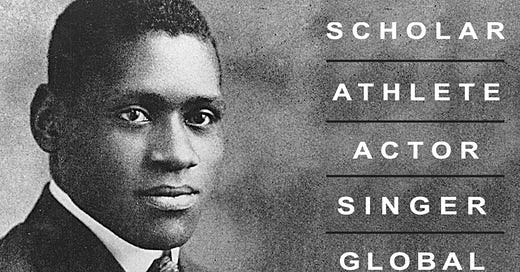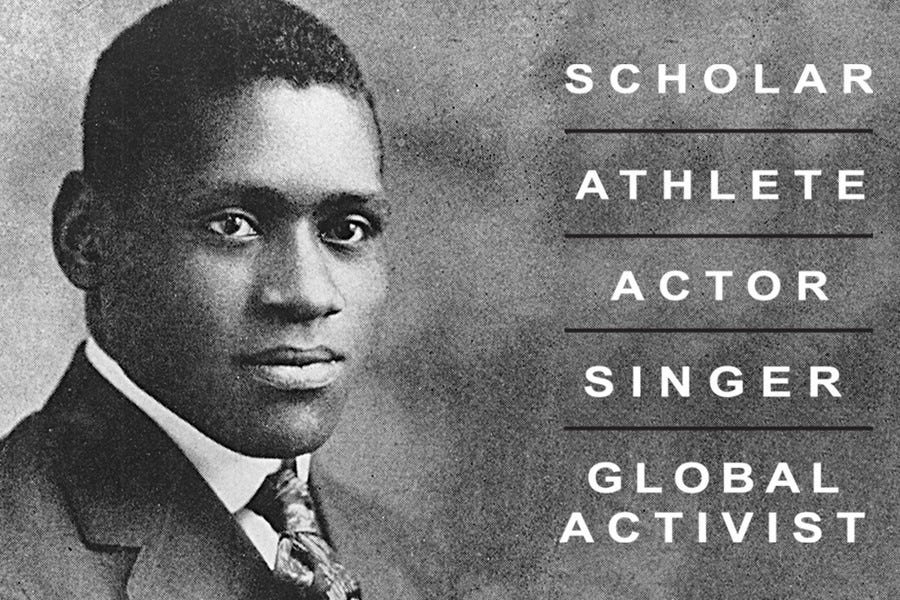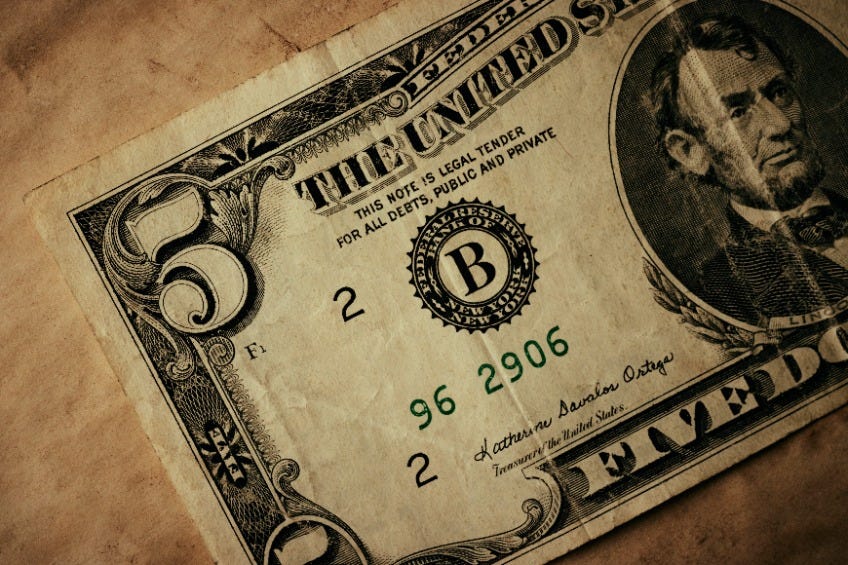Today In Black History
Paul Robeson, Scholar, Attorney, Actor, Singer, Activist
Issue #516 Today In Black History, Tuesday, February 27, 2024
Today’s Black History WOW!
Paul Robeson was born on April 9, 1898, in Princeton, New Jersey, the son of a former slave turned preacher. He became well known for his remarkable talents as an athlete, singer, actor, and activist. Throughout his life, Robeson never wavered in his commitment to fighting for justice and equality for all people.
Robeson's athletic prowess was evident from a young age, and he excelled in both football and basketball while attending Rutgers University. He received top honors for his debate and oratory skills, won 15 letters in four varsity sports, was elected Phi Beta Kappa, and became class valedictorian.
After graduating at the top of his class, he went on to study law at Columbia University. He obtained a law degree in 1923, but, because of the lack of opportunity for Blacks in the legal profession, he ultimately chose to pursue a career in acting and singing. Robeson quickly rose to fame on the stage and screen, earning critical acclaim for his performances in productions such as "Show Boat" and "Othello."
Robeson had a superb bass-baritone singing voice. The Broadway production of Othello (1943) set a record run for a Shakespearean play on Broadway. He performed songs in at least 25 different languages. He also spoke fifteen languages and performed benefits throughout the world for causes of social justice.
Increasing political awareness for civil rights and social justice compelled Robeson to visit the Soviet Union in 1934 while continuing his success in concerts, recordings, and theatre. During the 1940s, Robeson’s Black nationalist and anti-colonialist activities brought him to the attention of Senator Joseph McCarthy.
In 1950 the U.S. State Department withdrew his passport because he refused to sign an affidavit disclaiming membership in the Communist Party. In the following years, he was ostracized for his political views, although in 1958 the Supreme Court overturned the affidavit ruling and his passport was restored.
A beloved international figure with a huge following in Europe, Robeson regularly spoke out against racial injustice and was involved in world politics. He supported Pan-Africanism, sang for Loyalist soldiers during Spain's civil war, took part in anti-Nazi demonstrations, and performed for Allied forces during World War II.
Robeson was once considered for a U.S. vice presidential spot on Henry A. Wallace's 1948 Progressive Party ticket.
Paul Robeson died from a stroke on Jan. 23, 1976, in Philadelphia, PA, at the age of 77.
In 1995, more than seventy-five years after graduating from Rutgers, his athletic achievements were finally recognized with his posthumous entry into the College Football Hall of Fame.
Today In Black History
- In 1940, acclaimed Black actress and singer Hattie McDaniel became the first Black person to win an Academy Award, when she was awarded the honor for her role as “Mammy” in “Gone With The Wind,” although she was not allowed to attend the grand opening of the movie in Atlanta. During the celebration, McDaniel was not allowed to sit with the other white awardees and had to sit alone in the back of the room.
- In 1968, the National Advisory Commission on Civil Disorders, also known as the Kerner Commission, said that white racism was the fundamental cause of riots in American cities. The Commission also declared that America was “moving toward two societies, one Black, one white, separate and unequal.”
- The “Comments” feature has been disabled. Instead, let’s discuss these facts in our community on Substack Notes. You can also read other Substack publications without subscribing to them when you join Notes.
This post is free to read/listen to for three days after publication. To have 365 24/7 access to all our posts and podcast episodes and financially support “We Are Speaking” for no more than $5 per month, please subscribe at the paid level. You will receive a 7-day FREE trial!






